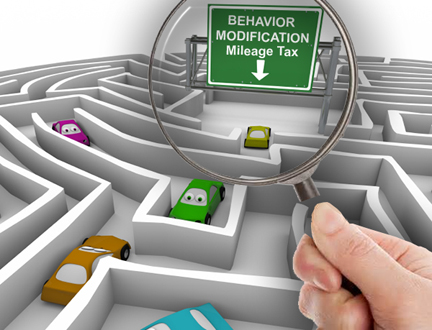
Breaking News
 Turning All U.S. Roads into Toll Roads: "Tax by Mile" is Here
Turning All U.S. Roads into Toll Roads: "Tax by Mile" is Here
 RFK's Deputy: Saviour or Wolf in Sheep's Clothing?
RFK's Deputy: Saviour or Wolf in Sheep's Clothing?
 One of America's biggest companies is imploding
One of America's biggest companies is imploding
 Zombie Voyager 1 Spacecraft Resurrects Its "Dead" Thrusters Over 15 Billion Miles Away
Zombie Voyager 1 Spacecraft Resurrects Its "Dead" Thrusters Over 15 Billion Miles Away
Top Tech News
 Watch: Jetson's One Aircraft Just Competed in the First eVTOL Race
Watch: Jetson's One Aircraft Just Competed in the First eVTOL Race
 Cab-less truck glider leaps autonomously between road and rail
Cab-less truck glider leaps autonomously between road and rail
 Can Tesla DOJO Chips Pass Nvidia GPUs?
Can Tesla DOJO Chips Pass Nvidia GPUs?
 Iron-fortified lumber could be a greener alternative to steel beams
Iron-fortified lumber could be a greener alternative to steel beams
 One man, 856 venom hits, and the path to a universal snakebite cure
One man, 856 venom hits, and the path to a universal snakebite cure
 Dr. McCullough reveals cancer-fighting drug Big Pharma hopes you never hear about…
Dr. McCullough reveals cancer-fighting drug Big Pharma hopes you never hear about…
 EXCLUSIVE: Raytheon Whistleblower Who Exposed The Neutrino Earthquake Weapon In Antarctica...
EXCLUSIVE: Raytheon Whistleblower Who Exposed The Neutrino Earthquake Weapon In Antarctica...
 Doctors Say Injecting Gold Into Eyeballs Could Restore Lost Vision
Doctors Say Injecting Gold Into Eyeballs Could Restore Lost Vision
Turning All U.S. Roads into Toll Roads: "Tax by Mile" is Here

Dan Titus, May 16, 2025
"…if somebody comes out with the idea that we're going to use the amount of miles you drive as some form of a punitive measure to regulate your behavior, this program is dead, dead, dead. It will just never happen…" – Jim Madaffer, California Transportation Commission, Road Charge Pilot
Road charge pilot programs, which propose replacing gas taxes with per-mile fees, are now being implemented throughout the United States. Influenced by the United Nations and California's climate change policies, the primary driver of these programs seeks outcomes that change human behavior and consumption patterns. In this article we will discuss road charge pilots in the context of these influences, denoting details on evolution, policy, current status and opposition critiques to these programs.
A key driver of road charge pilot programs is sustainable development, which in employs behavior modification techniques to steer individuals and communities toward environmentally and socially desirable actions, such as reducing carbon footprints or adopting renewable energy, in the name of climate change. Through mechanisms like hidden carbon taxes, subsidies for green technologies, or restrictive regulations, it incentivizes or penalizes behaviors, through punitive measures, to align with collective goals, often framed as serving the public good. However, this approach can be antithetical free association and informed consent, as it may bypass individual autonomy by imposing policies without transparent disclosure of their full implications or costs, such as higher energy prices or limited consumer choices. Road charge would institute punitive measures and regulate behavior by charging a fee for each mile a vehicle is driven.

 Node without Consent
Node without Consent Dark Matter: An 86-lb, 800-hp EV motor by Koenigsegg
Dark Matter: An 86-lb, 800-hp EV motor by Koenigsegg

